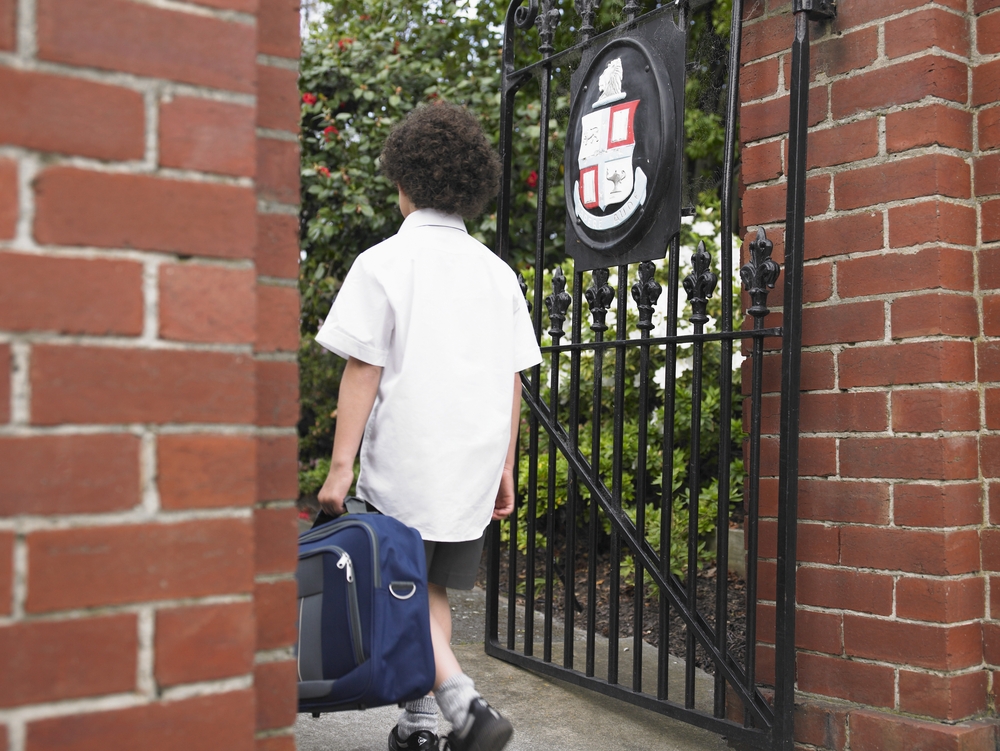Household Bills
Fines for parents who refuse to send kids back to school

The Prime Minister has urged parents to return their children to the classroom when schools re-open next week as the department for education confirms fines for non-attendance will resume.
Boris Johnson today appealed to parents to send their kids back to school in September while guidance on the full opening of classrooms confirms penalties of up to £120 can be issued for absences and parents could face prosecution if a valid reason or exemption is not given.
Johnson said: “We have always been guided by our scientific and medical experts, and we now know far more about coronavirus than we did earlier this year.
“As the chief medical officer said, the risk of contracting Covid-19 in school is very small and it is far more damaging for a child’s development and their health and well-being to be away from school any longer.
“This is why it’s vitally important that we get our children back into the classroom to learn and to be with their friends. Nothing will have a greater effect on the life chances of our children than returning to school.”
‘Exceptionally small risk to children’
It comes as the chief medical officers for England, Scotland, Northern Ireland and Wales said the infection fatality rate (proportion of those who are infected or die) for children aged five to 14 is estimated at 14 per million – lower than most seasonal flu infections.
Further, the percentage of symptomatic cases requiring hospitalisation for coronavirus is estimated at 0.1% for children aged up to nine-years old while for those aged 10-19, it’s 0.3%, compared to the general UK population rate of 4%. “Most of these children make a rapid recovery”, guidance stated.
Despite the appeal and the estimates, parents or carers refusing to send children back to school can face a fine where a valid reason for absence isn’t given, the department for education confirms.
As part of guidance published for the full re-opening of schools, it states: “In March when the coronavirus (Covid-19) outbreak was increasing, we made clear no parent would be penalised or sanctioned for their child’s non-attendance at school.
“Now the circumstances have changed and it is vital for all children to return to school to minimise as far as possible the longer-term impact of the pandemic on children’s education, wellbeing and wider development.”
Attendance will be mandatory from the autumn term, meaning fixed penalty notices can be issued. Local councils can give each parent a fine of £60, which rises to £120 each if not paid within 21 days. If it’s not paid after 28 days, parents can be prosecuted for a child’s absence from school.
Here, parents face a fine of up to £2,500, a community order or a jail sentence up to three months. The court also issues a Parenting Order, requiring parents to attend parenting classes as well as carry out tasks to improve the child’s school attendance record.
Exceptions to the penalty rules
However, there are exceptions such as if a child is self-isolating and has had symptoms, or a positive test result themselves; or because they are a close contact of someone who has coronavirus.
Further, if infection rates rise in local areas, children may be advised to shield and may therefore need to be absent from school.
Parents also won’t be penalised where a pupil is unable to attend school because they are complying with clinical and/or public health advice or where parents are following the same adnice.
Here, schools are expected to immediately offer pupils access to remote education.
The guidance also includes information on how schools should approach parents who are anxious about sending their children back into the classroom.
It states: “Schools should bear in mind the potential concerns of pupils, parents and households who may be reluctant or anxious about returning and put the right support in place to address this.
“This may include pupils who have themselves been shielding previously but have been advised that this is no longer necessary, those living in households where someone is clinically vulnerable, or those concerned about the comparatively increased risk from coronavirus, including those from Black, Asian and Minority Ethnic (BAME) backgrounds or who have certain conditions such as obesity and diabetes.”
What does the department for education say?
A department for education spokesperson, said: “Regular and full time school attendance from September will be essential to help pupils catch up on time out of the classroom. In all our decision making we have balanced the need to continue to control transmission of Covid-19 with the real and ongoing cost to children’s learning, welfare and health from being out of the school.
“Schools should work with families to ensure children are attending full time from September. As usual, fines will sit alongside this, but only as a last resort and where there is no valid reason for absence.”
The guidance relates to England so the devolved administrations may have different penalties for non-attendance or for the return to school date for children.